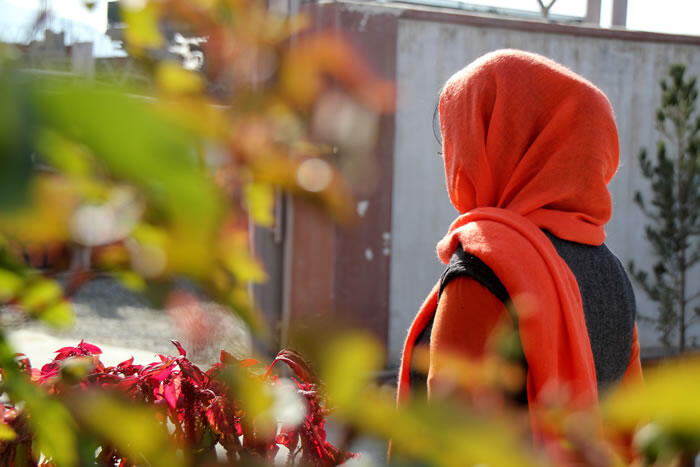"My uncle and my uncle's wife wanted me to get married after I graduated from school, but I was determined to find a job instead in order to support my further education. I wanted to become an attorney in the future and fulfil my dreams," says Dilara, a pseudonym which she chose in order not to use her real name - defying gender roles and family expectations is still a very sensitive issue in a conservative country like Afghanistan. Dilara is one of the many girls who are prevented from pursuing educational opportunities because of harmful traditional practices such as child marriage.
When a girl is pulled out of school and forced to marry young, her personal development is inhibited. She is left with little - if any - decision-making power in her new household. Often with limited education and few skills, many child brides are completely dependent on their husbands and in-laws to survive, and vulnerable to gender-based violence. However, this was not the future Dilara wanted.
Dilara, now 20 years of age, was brought up by her uncle and aunt after the death of her parents. "I usually went to school with tears in my eyes, but I was the third best student in the class. I believe girls shouldn't sur¬render to life and the pressure from society and family. They should instead challenge all these. They will definitely succeed," says Dilara. After graduating from high school, she defied the future her family had in mind for her and took up a part-time receptionist job in the morning and enrolled in an eve¬ning course in law at a private university.
"It is my second year in law school. I chose to study law so I can bring about justice; justice to the girls and women who are accused and imprisoned for minor and often unjust reasons" she says. "There are girls who face violence, such as forced marriage. After marriage they are subjected to daily violence by their husband or their husband's family. Some of these girls find no other way than to commit self-immolation... Can you imagine doing that to yourself? But women do it or they run away from their married life. Consequently, the people in the courts put them in jail, without probing the details of what happened to them," Dilara says. "I will do justice. I will be the voice for these people."
Last year Dilara's uncle died, leaving her as the breadwinner for her aunt and two young cousins. Because she confronted traditions and gender stereotypes she is now able to join the labour market and help lift herself - and her family - out of poverty. Pulling girls out of school and forcing them into early marriage ensures that poverty will be handed down from mother to daughter, from family to family, for generations to come, but Dilara has broken this circle.


